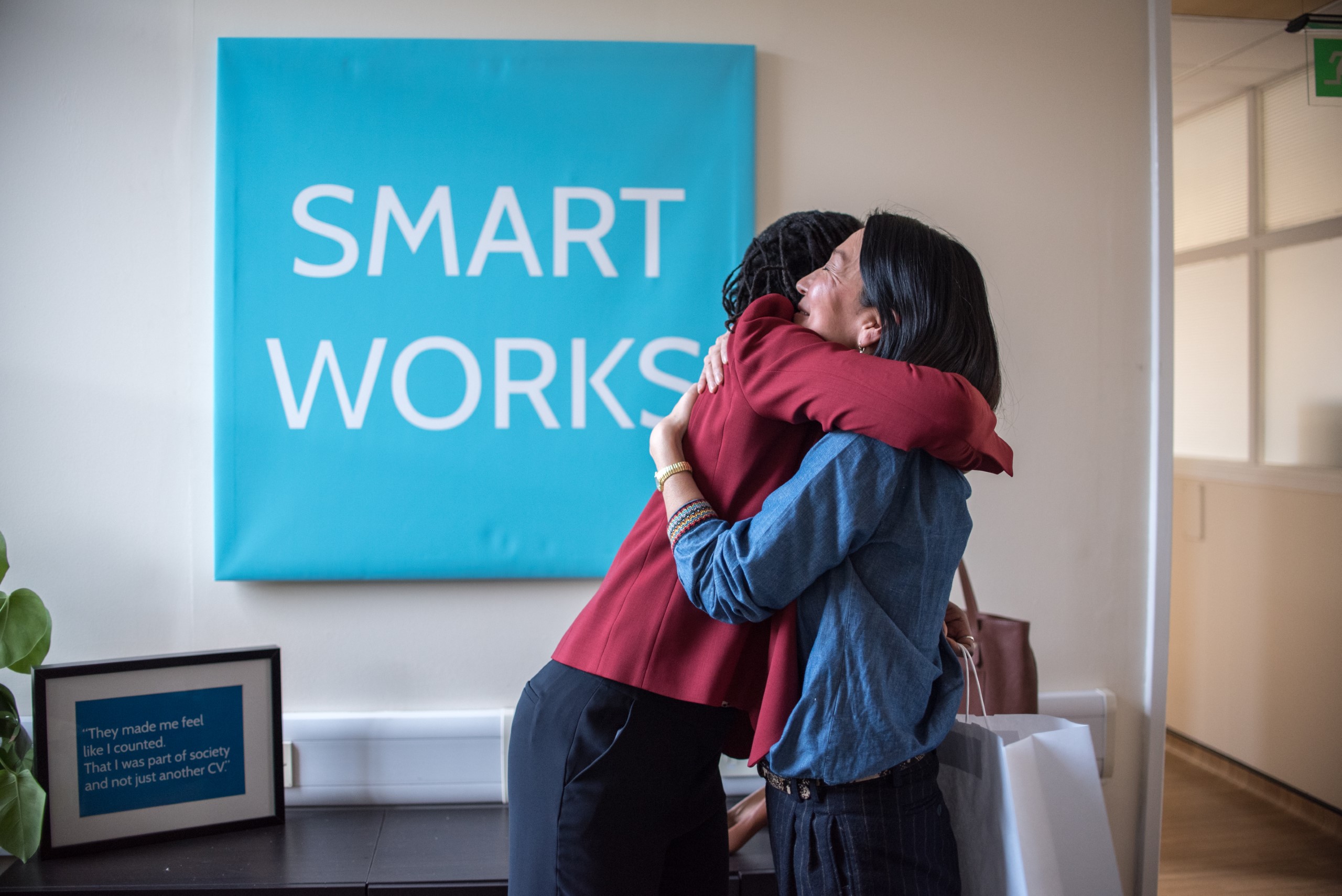CEO of Migrant Help, Caroline O’Connor tells Melissa Moody how a wrong phone call changed the course of her career, competing against the big boys and fighting for the underdog.
Since being appointed to CEO of Migrant Help in January 2020, Caroline O’Connor has faced a number of challenges, from the controversy and growing hostility surrounding migrants within the UK, to the government’s plans of deportations to Rwanda.
O’Connor didn’t originally intend to work in the charity sector; she trained as an accountant and worked in a number of private sector companies, moving to the UK IN 1996.
Eventually she was headhunted to do leadership training, moving into general management, which she enjoyed. “But then I got really frustrated because the men and women on the shop floor weren’t rewarded in the same way as shareholders and senior executives,” she explains. That’s when a wrong phone call changed things.
“I got a wrong number phone call from a recruitment consultant who was trying to reach my accountant and he said: ‘Oh I heard of a job today that would be perfect for you,”. From that call she moved into the charity sector and education. “I think it’s one of those things where fate puts you in the wrong place at the right time, and it just fit with how I felt at the moment.”
That was in 2005, and since then she’s been fighting for the underdog. From Philadelphia, where the Rocky Balboa story originated, O’Conner explains that fighting for the underdog is almost a part of her DNA. “I’ve worked in academy schools, the worst schools in the country; I’ve worked in children’s hospices with kids who have terminal illnesses and don’t have future, with their families who are coping with that. Now I’m working in the asylum and refugee sector, fighting for the underdog.”
Playing against the big boys
Before O’Connor started in the role, the charity was in the process of bidding for a government asylum contract, so as part of her role, and in her previous position as COO, she had to get the charity in a place where they could handle that.
This involved making sure it had good policies and governance in place, good computer systems, data security and an understanding ofhow to operate in a corporate competitive environment, as well as being a charity. She became CEO just as the charity won the contract
and it started, and six months into the new contract, the pandemic hit.
“It hasn’t been a slow, steady period since I joined,” O’Connor jokes, “but it’s been really exciting, truly invigorating… I do joke with the chair, though, that the job is nothing like she described it when they first recruited me.”
But winning the contract against big private and data companies has been a massive achievement for the charity. “Winning allowed us to keep our integrity, and we were determined that we wouldn’t be cheaper because we digitise things, that face-to-face support is just as important as cost savings,” she explains.
“We were persuasive enough to show that a charity could play in that playing field with the big boys.”
Due to the nature of its work, throughout the pandemic, the charity kept up many of its
services. It ran a phone line, which it kept up, and ran face-to-face services for those who needed it. To “some degree” its staff transitioned to home working, but it wasn’t possible for everyone.
“We actually grew throughout the pandemic because asylum seekers were still arriving,” she explains, with the growth attributed partly because during the pandemic, the system meant that people couldn’t be returned to the country if they were unsuccessful.
“We maintained services throughout outreach too,” she adds. “Nobody who needed to reach us was left without help… it would just be a slower process.”
In the time since the peak of the pandemic, the charity, like many, has been transitioning. People are coming back into the office in a hybrid setting and attempting to find a new work-life balance whilst still meeting its contractual demands. This is in a time when migrant rights are increasingly under scrutiny.
“It’s always been difficult,” O’Connor admits. “But I think public support of asylum seekers and refugees ebbs and flows but there is always the largest cohort of people who care about other people. And it may be that the loud voices or the negative voices are the people saying
things about asylum seekers, but that’s not how the general public feel.”
The charity, she feels, has a challenge in changing the narrative, one that has only increased recently. Good news and positive stories need to be amplified for the charity to do its work, particularly following the recent events in both Afghanistan and Ukraine, and their knock-on affects across the world.
“We have to almost prepare for the unexpected and unpredictable, which has been really difficult,” says O’Connor. Focusing on the positives comes back to some leadership advice she’s been given. O’Connor says that the best thing that she’s been told is: ‘Nobody remembers your mistakes as much as you do.’
“You spend so much time worrying about what you did wrong and it stands out more to you than anyone else,” she adds. “I think I spent a lot of time early in my career worrying about the mistakes I made instead of moving on to the next thing. So that was some of the best advice I had.”
Of course, having a government contract doesn’t mean that the charity doesn’t speak out against government policies affecting asylum seekers. “I think we have to be mindful about what we say and think about what we’re saying, but seeking asylum is a human right, and people don’t disagree; the government doesn’t disagree.” But you have to speak factually, she emphasises.
Remain compassionate
Like many CEOs, O’Connor’s favourite part of her role is the people she works with. The charity often employs people who have experiences in the asylum system or are migrants themselves “and you see how much they care.”
Employing people with lived experience is a great part about her work, and the sector, she says. “I’ve worked in children’s hospices before and education before that and there’s something very different in this sector. There are a lot of people who have lived experience so we’re very interested in client voice and co-production of our services within the sector and you don’t see that much in schools or healthcare.”
Having people at the heart of her work is integral to her style of leadership. “We’re all humans, we’re all fragile, and we shouldn’t think of our clients as asylum seekers as victims, but people.”
Despite her experience, O’Connor hasn’t always felt like she should be a leader. “I struggled with whether or not I was CEO material because I’m not a fundraiser, I’m not a salesman, I’m not a really outgoing type of person,” O’Connor admits. “But I can be tough and I can do the tough stuff and that comes from being an accountant and seeing how the numbers tie in. But I also have a real soft spot and I think that’s really important, to have that compassion and authenticity.”
That compassion and authenticity obviously feeds into her work, and is obvious as she talks that it means a great deal to her, partly influenced by the leaders she admired. She cites Barak Obama who “approached leadership quite differently” and Martin Luther King Jr, even Van Gough, “who had so much pain and anguish but turned it into something beautiful”.
“I like people who can find beauty and optimism and hope in what they’re doing and transform it into something amazing,” she says, concluding with a reminder of the underdogs of the world, which is where most of her true heroes lie.
Latest News
-
King’s New Year’s Honours list pays tribute to charity leaders
-
Charity Leaders’ 2026 To Do List
-
Toy library charity to fight on despite closure fears
-
2025: A year in the news
-
Funder launches initiative to improve charity board diversity
-
National Trust's former legal counsel takes senior role at charity regulator
Charity Times video Q&A: In conversation with Hilda Hayo, CEO of Dementia UK
Charity Times editor, Lauren Weymouth, is joined by Dementia UK CEO, Hilda Hayo to discuss why the charity receives such high workplace satisfaction results, what a positive working culture looks like and the importance of lived experience among staff. The pair talk about challenges facing the charity, the impact felt by the pandemic and how it's striving to overcome obstacles and continue to be a highly impactful organisation for anybody affected by dementia.
Charity Times Awards 2023
Mitigating risk and reducing claims

The cost-of-living crisis is impacting charities in a number of ways, including the risks they take. Endsleigh Insurance’s* senior risk management consultant Scott Crichton joins Charity Times to discuss the ramifications of prioritising certain types of risk over others, the financial implications risk can have if not managed properly, and tips for charities to help manage those risks.
* Coming soon… Howden, the new name for Endsleigh.
* Coming soon… Howden, the new name for Endsleigh.
Better Society

© 2021 Perspective Publishing Privacy & Cookies











Recent Stories